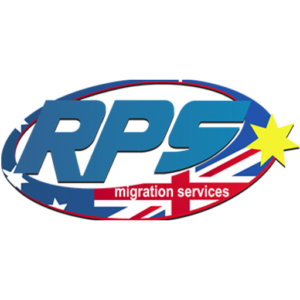Our Services
Pharmacist

Pharmacists play a crucial role in the Australian healthcare system, contributing to patient care, medication management, and public health.
Here are some key aspects of their role:
Pharmacists are responsible for accurately dispensing prescription medications to patients. They ensure that the right medication, dosage, and instructions are provided to patients based on prescriptions from healthcare professionals.
Pharmacists provide essential counseling to patients about their medications. They explain how to take medications correctly, potential side effects or interactions with other drugs or food, and answer any questions or concerns patients may have.
Pharmacists conduct medication reviews to assess the appropriateness and safety of a patient’s medication regimen. This includes identifying potential drug interactions or adverse effects and making recommendations for optimizing therapy.
Pharmacists play an active role in managing chronic diseases such as diabetes, hypertension, asthma, and more. They work collaboratively with other healthcare professionals to monitor patients’ conditions, optimize medication regimens, and provide education on self-management strategies.
Pharmacists contribute significantly to public health initiatives by providing vaccinations, such as flu shots, and promoting preventive measures. They educate individuals on lifestyle modifications, disease prevention, and proper use of over-the-counter medications.
Ensuring patient safety is a priority for pharmacists. They actively participate in reducing medication errors by implementing systems like electronic prescribing, evidence-based guidelines, and promoting safe storage and disposal of medications.
Pharmacists collaborate with physicians, nurses, and other healthcare professionals as part of an interdisciplinary team. This collaboration enhances patient care through shared decision-making, care coordination, and improved communication among providers.
Pharmacist’s expertise extends beyond dispensing medications. They educate patients about disease management, lifestyle modifications, dietary considerations, and adherence strategies. This empowers individuals to take an active role in their own health.
Pharmacists utilize technology to support medication management, such as electronic health records, medication reconciliation systems, and automated dispensing systems. These tools enhance accuracy, efficiency, and patient safety.
Many pharmacists are involved in research activities to advance pharmaceutical knowledge and contribute to evidence-based practice. They also provide education and training to pharmacy students, interns, and other healthcare professionals.
The role of pharmacists in the Australian healthcare system is multifaceted. They contribute significantly to patient care, safety, and public health initiatives. Their expertise in medications makes them valuable members of the healthcare team, ensuring optimal medication use for improved patient outcomes.
Contribution of overseas-trained pharmacists in Australia
Overseas-trained pharmacists make a valuable contribution to the Australian healthcare system. Here are some ways in which they contribute:

Addressing Workforce Shortages
Overseas-trained pharmacists help address workforce shortages, particularly in areas where there may be a higher demand for pharmacy services but a limited number of locally trained pharmacists available. Their skills and expertise ensure that communities have access to essential pharmaceutical care.

Cultural Diversity and Language Skills
Pharmacists who have been trained overseas bring cultural diversity and language skills that can benefit patients from diverse backgrounds. They can communicate effectively with patients who may have limited English proficiency, ensuring better understanding and delivery of pharmaceutical care.

Specialist Expertise
Some overseas-trained pharmacists bring specialized knowledge or expertise in specific areas of pharmacy practice, such as clinical pharmacy, hospital pharmacy, or pharmaceutical research. They enhance the range of services available to patients by providing specialized care and contributing to advancements in the field.

Knowledge Exchange
Overseas-trained pharmacists often bring different perspectives, experiences, and approaches to patient care based on their training from other countries. They contribute to knowledge exchange within the profession by sharing insights on different treatment modalities, research findings, and advancements in technology. This enriches the overall practice of pharmacy in Australia.

Continuous Professional Development (CPD)
Overseas-trained pharmacists are required to engage in ongoing CPD activities as part of maintaining their registration. This ensures that they stay up-to-date with current best practices, research advancements, and changes within the Australian healthcare system. Their participation in CPD activities contributes not only to their professional development but also helps enhance overall standards within the field.

Collaboration and Networking
Overseas-trained pharmacists often collaborate with local practitioners, specialists, and other healthcare professionals. They participate actively in professional networks, associations, and conferences fostering collaboration, knowledge sharing, and interdisciplinary care for patients.

Rural and Remote Practice
Overseas-trained pharmacists may choose to work in rural or remote areas of Australia where there is a greater need for pharmacy services. These practitioners help ensure that individuals living in these regions have access to quality pharmaceutical care without having to travel long distances.
The contribution of overseas-trained pharmacists is highly valued in Australia as they bring diverse skills, knowledge, and experiences that complement the local workforce. They play an important role in meeting the healthcare needs of communities across the country while contributing to professional development, cultural diversity, and improved patient outcomes.
Registration of Overseas-trained Pharmacist
The registration process for overseas-trained pharmacists in Australia involves several steps. Here is an overview of the process:

1. Eligibility Assessment
The first step is to determine if you meet the eligibility criteria for registration as a pharmacist in Australia. This typically includes having completed a recognized pharmacy degree or equivalent qualification, meeting English language proficiency requirements, and having relevant work experience.

2. Document Verification
You will need to provide documentation to support your qualifications and work experience. This may include academic transcripts, proof of completion of internships or practical training, evidence of professional registration in your home country (if applicable), and English language test results.

3. Skills Assessment
Overseas-trained pharmacists are required to undergo a skills assessment by the Australian Pharmacy Council (APC). The APC assesses your qualifications and determines if they are comparable to Australian standards. They may require additional information or assessments such as an interview or written examination.

4. Bridging Program (if required)
Depending on the outcome of the skills assessment, you may be required to complete a bridging program approved by the Pharmacy Board of Australia (PBA). Bridging programs help overseas-trained pharmacists familiarize themselves with Australian pharmacy practice standards and regulations.

5. English Language Proficiency
If English is not your first language, you will need to demonstrate proficiency through an approved English language test such as IELTS or OET.

6. Application for Registration
Once you have successfully completed the skills assessment and any required bridging program, you can apply for registration with the Pharmacy Board of Australia (PBA) through their online portal AHPRA (Australian Health Practitioner Regulation Agency).

7. Registration Fees & Requirements
There are fees associated with applying for registration as an overseas-trained pharmacist. These fees cover application processing, certification, and ongoing annual renewal requirements. You will also need to meet any additional requirements set by PBA, such as criminal history checks, vaccination records, and professional indemnity insurance.

8. Provisional Registration and Internship
Upon successful registration, you may be granted provisional registration as a pharmacist in Australia. This allows you to work under supervision and complete an internship program to gain practical experience in the Australian healthcare system.
It’s important to note that the registration process may vary depending on individual circumstances, qualifications, and any changes in regulatory requirements. It is advisable to refer directly to the Pharmacy Board of Australia (PBA) and Australian Health Practitioner Regulation Agency (AHPRA) websites for up-to-date information and guidance specific to your situation. Additionally, seeking assistance from migration agents or professional organizations specializing in pharmacy registration can provide valuable support throughout the process.
Examination Process
The examination process for overseas-trained pharmacists in Australia is an important step towards obtaining registration to practice as a pharmacist. Here is a detailed description of the examinations involved:
1. Australian Pharmacy Council (APC) Written Examination
The first examination that overseas-trained pharmacists need to undertake is the APC Written Examination. This exam assesses your knowledge and understanding of pharmacy practice in Australia, including legal and ethical aspects, therapeutic principles, drug information retrieval, and clinical decision-making.
The exam consists of multiple-choice questions (MCQs) with four options. It is computer-based and conducted at designated testing centers.
To prepare for this exam, it is recommended to study relevant Australian pharmacy textbooks, guidelines, and resources. Familiarize yourself with local laws and regulations governing pharmacy practice.
2. Intern Training Program (ITP)
After successfully passing the APC Written Examination, you will need to complete an Intern Training Program (ITP). This program provides practical training under supervision in an approved workplace setting.
The ITP typically lasts for one year full-time or equivalent part-time hours.
During the ITP, you will be required to complete specific learning objectives outlined by the Pharmacy Board of Australia (PBA). These objectives cover various areas of pharmacy practice such as dispensing medications accurately, providing patient counseling, managing medication-related issues effectively, and demonstrating professional conduct.
You will work under the supervision of a registered pharmacist who will guide your learning and provide feedback on your progress.
3. Oral Examination or Objective Structured Clinical Examination (OSCE)
Once you have completed the ITP successfully, you may be required to undergo an oral examination or OSCE conducted by the APC. This assessment evaluates your ability to apply knowledge and skills in real-life scenarios.
The oral examination involves face-to-face interviews with examiners who assess your communication skills, critical thinking, and problem-solving abilities in pharmacy practice situations.
The OSCE consists of a series of stations where you will encounter simulated patient scenarios or practical tasks. You will be assessed on your ability to perform specific skills, communicate effectively, and make appropriate clinical decisions.
4. English Language Proficiency Test (if required)
If English is not your first language, you may need to demonstrate proficiency through an approved English language test such as IELTS or OET. This requirement ensures that you can effectively communicate with patients and healthcare professionals.
It’s important to note that the examination process may vary depending on individual circumstances and any changes in regulatory requirements. It is advisable to refer directly to the Australian Pharmacy Council (APC) website for up-to-date information and guidance specific to your situation. Additionally, seeking assistance from professional organizations or mentors who have gone through the examination process can provide valuable support and advice throughout your preparation journey.
RPS Assistance on Registration
RPS Migration Services is a highly reputable and trusted agency that provides top-notch assistance to overseas-trained pharmacists seeking registration in Australia. Here are some key aspects of their services:
RPS Migration Services has a team of experienced migration agents who specialize in assisting healthcare professionals, including pharmacists, with the registration process. They have in-depth knowledge of the requirements set by the Pharmacy Board of Australia (PBA) and can provide accurate and up-to-date guidance.
RPS Migration Services conducts a thorough assessment of your qualifications, work experience, and English language proficiency to determine your eligibility for registration as a pharmacist in Australia. They will guide you through any additional requirements or steps you may need to fulfill.
The agency assists with preparing all necessary documents required for the registration process, including academic transcripts, proof of internships or practical training, professional registrations from your home country (if applicable), English language test results, and other supporting documentation.
RPS Migration Services provides comprehensive support throughout the skills assessment process conducted by the Australian Pharmacy Council (APC). They assist with gathering all required documents and ensure that your qualifications are presented accurately to meet Australian standards.
If you are required to complete a bridging program approved by the PBA, RPS Migration Services can guide you through this process. They help you find suitable programs, schedule enrollment, and provide advice on how to make the most out of these programs.
The agency assists with lodging your application for registration with the Pharmacy Board of Australia (PBA)through their online portal AHPRA. They ensure that all necessary information is provided accurately and follow up on any queries or requests from regulatory authorities on your behalf.
Throughout the entire registration process, RPS Migration Services maintains regular communication with you. They keep you informed about the progress of your application, provide updates on any changes in requirements, and address any concerns or queries you may have.
In addition to registration assistance, RPS Migration Services can provide guidance on visa options and help with the visa application process if needed. They offer comprehensive support for all aspects of your migration journey.
RPS Migration Services is dedicated to providing personalized and high-quality assistance to overseas-trained pharmacists. Their expertise, attention to detail, and commitment to client satisfaction make them a top choice for those seeking registration in Australia.
